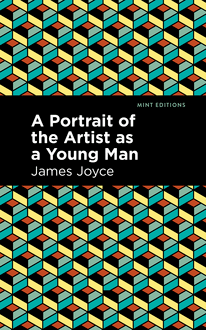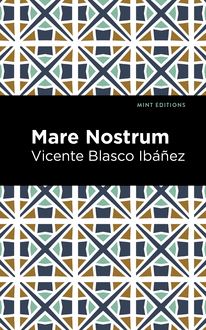-
 Univers
Univers
-
 Ebooks
Ebooks
-
 Livres audio
Livres audio
-
 Presse
Presse
-
 Podcasts
Podcasts
-
 BD
BD
-
 Documents
Documents
-
- Cours
- Révisions
- Ressources pédagogiques
- Sciences de l’éducation
- Manuels scolaires
- Langues
- Travaux de classe
- Annales de BEP
- Etudes supérieures
- Maternelle et primaire
- Fiches de lecture
- Orientation scolaire
- Méthodologie
- Corrigés de devoir
- Annales d’examens et concours
- Annales du bac
- Annales du brevet
- Rapports de stage
La lecture à portée de main

Vous pourrez modifier la taille du texte de cet ouvrage
Découvre YouScribe en t'inscrivant gratuitement
Je m'inscrisDécouvre YouScribe en t'inscrivant gratuitement
Je m'inscrisEn savoir plus
Vous pourrez modifier la taille du texte de cet ouvrage
En savoir plus

Description
After a family member tragically falls ill, Una Golden was forced to move from Pennsylvania to New York in order to get a job to help support her family. Set in the early 1900s, going to the big city as a single woman was daunting and unconventional, but Una is dedicated to helping her family. After diligently job searching and excelling in additional training and education, Una discovers that she has the skills to be a talented commercial real estate agent. Though Una is very good at her job, and the company value her, the male-dominant real estate field suggests that it is a job exclusive to men. Because of this, Una is forced to work twice as hard to earn the same respect and equity that her male coworkers are freely given. Meanwhile, Una tries to manage her love life, because it is expected for a woman to get married and Una desires a partnership. However, the sexist social standard for women expects women to work a meaningless job before marriage, and since Una is so skilled in her field, many men are too intimidated or insecure to consider her as a potential wife. Frustrated and overworked, Una is about to give up hope when she meets Edward, a charming salesman. As their romance begins to develop and Una remains dedicated to her career, she learns more about herself, encouraging her to defy convention to achieve her dreams.
The Job is praised as an early advocate for the rights of working women, a cause that author Sinclair Lewis was very dedicated to. With unforgettable and authentic prose and characters, The Job is an intriguing depiction of the 20th century workplace in America, accompanying the compelling perspective with themes of equality, gender roles, and class divides.
This edition of The Job by Sinclair Lewis features a new, eye-catching cover design and is printed in a stylish font, making it both readable and modern.
Sujets
Informations
| Publié par | Mint Editions |
| Date de parution | 16 février 2021 |
| Nombre de lectures | 0 |
| EAN13 | 9781513279329 |
| Langue | English |
Informations légales : prix de location à la page 0,0500€. Cette information est donnée uniquement à titre indicatif conformément à la législation en vigueur.
Extrait
The Job
Sinclair Lewis
The Job was first published in 1917.
This edition published by Mint Editions 2021.
ISBN 9781513279220 | E-ISBN 9781513279329
Published by Mint Editions®
minteditionbooks.com
Publishing Director: Jennifer Newens
Design & Production: Rachel Lopez Metzger
Project Manager: Micaela Clark
Typesetting: Westchester Publishing Services
C ONTENTS P ART I. T HE C ITY P ART II. T HE O FFICE P ART III. M AN AND W OMAN
PART I
THE CITY
I
Captain Lew Golden would have saved any foreign observer a great deal of trouble in studying America. He was an almost perfect type of the petty small-town middle-class lawyer. He lived in Panama, Pennsylvania. He had never been “captain” of anything except the Crescent Volunteer Fire Company, but he owned the title because he collected rents, wrote insurance, and meddled with lawsuits.
He carried a quite visible mustache-comb and wore a collar, but no tie. On warm days he appeared on the street in his shirt-sleeves, and discussed the comparative temperatures of the past thirty years with Doctor Smith and the Mansion House ’bus-driver. He never used the word “beauty” except in reference to a setter dog—beauty of words or music, of faith or rebellion, did not exist for him. He rather fancied large, ambitious, banal, red-and-gold sunsets, but he merely glanced at them as he straggled home, and remarked that they were “nice.” He believed that all Parisians, artists, millionaires, and socialists were immoral. His entire system of theology was comprised in the Bible, which he never read, and the Methodist Church, which he rarely attended; and he desired no system of economics beyond the current platform of the Republican party. He was aimlessly industrious, crotchety but kind, and almost quixotically honest.
He believed that “Panama, Pennsylvania, was good enough for anybody.”
This last opinion was not shared by his wife, nor by his daughter Una.
Mrs. Golden was one of the women who aspire just enough to be vaguely discontented; not enough to make them toil at the acquisition of understanding and knowledge. She had floated into a comfortable semi-belief in a semi-Christian Science, and she read novels with a conviction that she would have been a romantic person “if she hadn’t married Mr. Golden—not but what he’s a fine man and very bright and all, but he hasn’t got much imagination or any, well, romance !”
She wrote poetry about spring and neighborhood births, and Captain Golden admired it so actively that he read it aloud to callers. She attended all the meetings of the Panama Study Club, and desired to learn French, though she never went beyond borrowing a French grammar from the Episcopalian rector and learning one conjugation. But in the pioneer suffrage movement she took no part—she didn’t “think it was quite ladylike.” … She was a poor cook, and her house always smelled stuffy, but she liked to have flowers about. She was pretty of face, frail of body, genuinely gracious of manner. She really did like people, liked to give cookies to the neighborhood boys, and—if you weren’t impatient with her slackness—you found her a wistful and touching figure in her slight youthfulness and in the ambition to be a romantic personage, a Marie Antoinette or a Mrs. Grover Cleveland, which ambition she still retained at fifty-five.
She was, in appearance, the ideal wife and mother—sympathetic, forgiving, bright-lipped as a May morning. She never demanded; she merely suggested her desires, and, if they were refused, let her lips droop in a manner which only a brute could withstand.
She plaintively admired her efficient daughter Una.
Una Golden was a “good little woman”—not pretty, not noisy, not particularly articulate, but instinctively on the inside of things; naturally able to size up people and affairs. She had common sense and unkindled passion. She was a matter-of-fact idealist, with a healthy woman’s simple longing for love and life. At twenty-four Una had half a dozen times fancied herself in love. She had been embraced at a dance, and felt the stirring of a desire for surrender. But always a native shrewdness had kept her from agonizing over these affairs.
She was not—and will not be—a misunderstood genius, an undeveloped artist, an embryonic leader in feminism, nor an ugly duckling who would put on a Georgette hat and captivate the theatrical world. She was an untrained, ambitious, thoroughly commonplace, small-town girl. But she was a natural executive and she secretly controlled the Golden household; kept Captain Golden from eating with his knife, and her mother from becoming drugged with too much reading of poppy-flavored novels.
She wanted to learn, learn anything. But the Goldens were too respectable to permit her to have a job, and too poor to permit her to go to college. From the age of seventeen, when she had graduated from the high school—in white ribbons and heavy new boots and tight new organdy—to twenty-three, she had kept house and gone to gossip-parties and unmethodically read books from the town library—Walter Scott, Richard Le Gallienne, Harriet Beecher Stowe, Mrs. Humphry Ward, How to Know the Birds , My Year in the Holy Land , Home Needlework , Sartor Resartus , and Ships that Pass in the Night . Her residue of knowledge from reading them was a disbelief in Panama, Pennsylvania.
She was likely never to be anything more amazing than a mother and wife, who would entertain the Honiton Embroidery Circle twice a year.
Yet, potentially, Una Golden was as glowing as any princess of balladry. She was waiting for the fairy prince, though he seemed likely to be nothing more decorative than a salesman in a brown derby. She was fluid; indeterminate as a moving cloud.
Although Una Golden had neither piquant prettiness nor grave handsomeness, her soft littleness made people call her “Puss,” and want to cuddle her as a child cuddles a kitten. If you noted Una at all, when you met her, you first noted her gentle face, her fine-textured hair of faded gold, and her rimless eye-glasses with a gold chain over her ear. These glasses made a business-like center to her face; you felt that without them she would have been too childish. Her mouth was as kind as her spirited eyes, but it drooped. Her body was so femininely soft that you regarded her as rather plump. But for all her curving hips, and the thick ankles which she considered “common,” she was rather anemic. Her cheeks were round, not rosy, but clear and soft; her lips a pale pink. Her chin was plucky and undimpled; it was usually spotted with one or two unimportant eruptions, which she kept so well covered with powder that they were never noticeable. No one ever thought of them except Una herself, to whom they were tragic blemishes which she timorously examined in the mirror every time she went to wash her hands. She knew that they were the result of the indigestible Golden family meals; she tried to take comfort by noticing their prevalence among other girls; but they kept startling her anew; she would secretly touch them with a worried forefinger, and wonder whether men were able to see anything else in her face.
You remembered her best as she hurried through the street in her tan mackintosh with its yellow velveteen collar turned high up, and one of those modest round hats to which she was addicted. For then you were aware only of the pale-gold hair fluffing round her school-mistress eye-glasses, her gentle air of respectability, and her undistinguished littleness.
She trusted in the village ideal of virginal vacuousness as the type of beauty which most captivated men, though every year she was more shrewdly doubtful of the divine superiority of these men. That a woman’s business in life was to remain respectable and to secure a man, and consequent security, was her unmeditated faith—till, in 1905, when Una was twenty-four years old, her father died.
§ 2
C APTAIN G OLDEN LEFT TO WIFE and daughter a good name, a number of debts, and eleven hundred dollars in lodge insurance. The funeral was scarcely over before neighbors—the furniture man, the grocer, the polite old homeopathic doctor—began to come in with bland sympathy and large bills. When the debts were all cleared away the Goldens had only six hundred dollars and no income beyond the good name. All right-minded persons agree that a good name is precious beyond rubies, but Una would have preferred less honor and more rubies.
She was so engaged in comforting her mother that she scarcely grieved for her father. She took charge of everything—money, house, bills.
Mrs. Golden had been overwhelmed by a realization that, however slack and shallow Captain Golden had been, he had adored her and encouraged her in her gentility, her pawing at culture. With an emerging sincerity, Mrs. Golden mourned him, now, missed his gossipy presence—and at the same time she was alive to the distinction it added to her slim gracefulness to wear black and look wan. She sobbed on Una’s shoulder; she said that she was lonely; and Una sturdily comforted her and looked for work.
One of the most familiar human combinations in the world is that of unemployed daughter and widowed mother. A thousand times you have seen the jobless daughter devoting all of her curiosity, all of her youth, to a widowed mother of small pleasantries, a small income, and a shabby security. Thirty comes, and thirty-five. The daughter ages steadily. At forty she is as old as her unwithering mother. Sweet she is, and pathetically hopeful of being a pianist or a nurse; never quite reconciled to spinsterhood, though she often laughs about it; often, by her insistence that she is an “old maid,” she makes the thought of her barren age embarrassing to others. The mother is sweet, too, and “wants to keep in touch with her daughter’s interests,” only, her daughter has no interests. Had the daughter revolted at eighteen, had she stubbornly insisted that mother either accompany
Attention
En entrant sur cette page, vous certifiez :
- 1. avoir atteint l'âge légal de majorité de votre pays de résidence.
- 2. avoir pris connaissance du caractère érotique de ce document.
- 3. vous engager à ne pas diffuser le contenu de ce document.
- 4. consulter ce document à titre purement personnel en n'impliquant aucune société ou organisme d'État.
- 5. vous engager à mettre en oeuvre tous les moyens existants à ce jour pour empêcher n'importe quel mineur d'accéder à ce document.
- 6. déclarer n'être choqué(e) par aucun type de sexualité.
YouScribe ne pourra pas être tenu responsable en cas de non-respect des points précédemment énumérés. Bonne lecture !
-
 Univers
Univers
-
 Ebooks
Ebooks
-
 Livres audio
Livres audio
-
 Presse
Presse
-
 Podcasts
Podcasts
-
 BD
BD
-
 Documents
Documents
-
Jeunesse
-
Littérature
-
Ressources professionnelles
-
Santé et bien-être
-
Savoirs
-
Education
-
Loisirs et hobbies
-
Art, musique et cinéma
-
Actualité et débat de société
-
Jeunesse
-
Littérature
-
Ressources professionnelles
-
Santé et bien-être
-
Savoirs
-
Education
-
Loisirs et hobbies
-
Art, musique et cinéma
-
Actualité et débat de société
-
Actualités
-
Lifestyle
-
Presse jeunesse
-
Presse professionnelle
-
Pratique
-
Presse sportive
-
Presse internationale
-
Culture & Médias
-
Action et Aventures
-
Science-fiction et Fantasy
-
Société
-
Jeunesse
-
Littérature
-
Ressources professionnelles
-
Santé et bien-être
-
Savoirs
-
Education
-
Loisirs et hobbies
-
Art, musique et cinéma
-
Actualité et débat de société
- Cours
- Révisions
- Ressources pédagogiques
- Sciences de l’éducation
- Manuels scolaires
- Langues
- Travaux de classe
- Annales de BEP
- Etudes supérieures
- Maternelle et primaire
- Fiches de lecture
- Orientation scolaire
- Méthodologie
- Corrigés de devoir
- Annales d’examens et concours
- Annales du bac
- Annales du brevet
- Rapports de stage


















